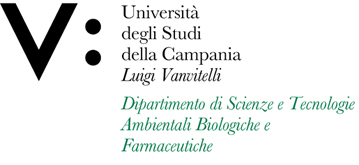Antonio FIORENTINO
Insegnamento di CHIMICA ORGANICA
Corso di laurea magistrale a ciclo unico in FARMACIA
SSD: CHIM/06
CFU: 15,00
ORE PER UNITÀ DIDATTICA: 120,00
Periodo di Erogazione: Annualità Singola
Italiano
| Lingua di insegnamento | Italiano |
| Contenuti | La prima parte del corso affronta lo studio di: |
| Testi di riferimento | J. McMurry CHIMICA ORGANICA IX edizione – PICCIN, Napoli, 2017 |
| Obiettivi formativi | Al termine dell’attività formativa lo studente avrà consolidato le conoscenze e competenze relative alla chimica organica di base ed avere acquisito conoscenze e competenze relative alla chimica organica in funzione degli esami successivi e per lo studio dei farmaci. |
| Prerequisiti | Conoscenze acquisite nel corso di Chimica generale ed inorganica (esame propedeutico). Lo studente deve possedere le conoscenze fondamentali su: struttura dell’atomo; orbitali atomici; teoria degli orbitali molecolari; struttura elettronica e legami; acidi e basi; equilibrio chimico; bilanciamento redox |
| Metodologie didattiche | Il corso prevede la frequenza obbligatoria ed è articolato in 112 ore di lezioni frontali svolte dal docente in cui verrà esposta la teoria e verrà applicata a molteplici esempi e risoluzioni di esercizi, 8 ore di laboratorio (quattro sessioni di 2 ore nel laboratorio didattico di Chimica) e 255 ore di studio individuale. Nel suo lavoro personale lo studente dovrà assimilare conoscenze e concetti alla base della chimica organica e risolvere esercizi. |
| Metodi di valutazione | L’esame consiste nel superamento, con una votazione di almeno 16/30, di una prova scritta, della durata di 90 minuti, dove lo studente, attraverso domande a risposta aperta, dovrà applicare le conoscenze acquisite sulla nomenclatura, sulla reattività e sugli aspetti stereochimici dei composti organici ad esercizi di sintesi organica. Il superamento della prova scritta è propedeutico all’esame orale. |
| Altre informazioni | La frequenza alle attività di laboratorio e la consegna delle relazioni sulle singole esercitazioni sono obbligatorie, rispettando le scadenze indicate. |
| Programma del corso | Il carbonio: ibridazione degli orbitali, lunghezza di legame, forza di legame, angoli di legame; legami singoli, doppi e tripli; momenti dipolari delle molecole; struttura di carbocationi, carbanioni e radicali; acidi organici e basi organiche, influenza della struttura sul pKa; effetto del pH sulla struttura dei composti organici; acidi e basi di Lewis. |
English
| Teaching language | Italian |
| Contents | The first part of the course is devoted to |
| Textbook and course materials | J. McMurry CHIMICA ORGANICA IX edizione – PICCIN, Napoli, 2017 |
| Course objectives | At the end of the course the student is expected to strengthen knowledge of basic organic chemistry and acquire learning and knowledge of advanced organic chemistry as a platform for the study of subsequent courses and the study of drugs. |
| Prerequisites | Knowledges acquired in the course on General and inorganic chemistry (propaedeutic exam). The student must have basic knowledges on: atom structure; atomic orbitals; electronic structure and bonding; molecular orbital theory; acids and basis; chemical equilibrium; redox balancing. |
| Teaching methods | The course consists in 112 hours of frontal lessons carried out by the teacher in which will be described the theory, applied to different examples and to the resolution of exercises, 8 hours of laboratory (4 sessions of 2 hours in the lab of Chemistry), and 255 hours of individual work. Attendance is compulsory. During its individual work, the student must acquire basic knowledge and concepts of the organic chemistry and resolve exercises. |
| Evaluation methods | The exam consists in the successful completion, with the minimum value of 16/30, of the written test, last 90 minutes, where the student, through open questions have to apply the knowledges acquired on the nomenclature, the reactivity, the stereochemistry of organic compounds, to organic synthesis exercises. The written test is propaedeutic to the final exam. |
| Other information | The attendance to the laboratory and the delivery of the reports on the exercitations are mandatory. |
| Course Syllabus | Carbon: orbital ibridization, bond length, bond strength, bond angles; single, double and triple bonds; dipole moment of the molecules; structures of carbocations, carbanions and radicals; organic acids and bases, influence of structure on PKa; effect of pH on the structure of organic compounds; Lewis acids and bases. |








